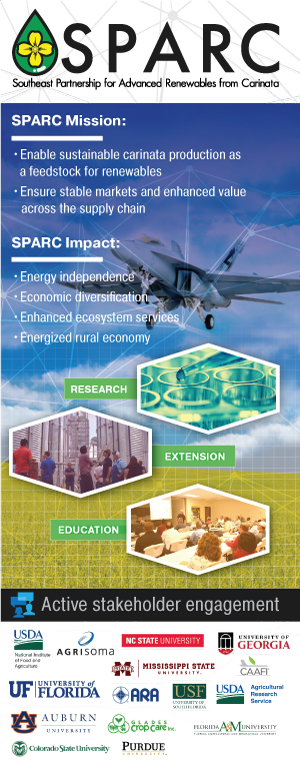About SPARC
SPARC is a collaboration of regional land grant universities, 1890 institutions, and industry partners represented by subject matter experts in basic and applied research, extension and outreach and workforce development. The three pillars of research, extension and workforce development work collaboratively to achieve our five year goal of establishing over 800,000 acres of carinata as a viable winter crop in the Southeast US, resulting in a carinata centered advanced renewables and coproduct supply chain in the region with national and global impact.
History
Collaborative work among University of Florida (UF), Agrisoma Biosciences Inc., holder of the world’s largest carinata germplasm collection, and Applied Research Associates (ARA), FL, USA, a chemical engineering company with a patented catalytic hydrothermolysis (CH) technology for conversion of carinata oil into ‘drop-in’ bio-jet and bio-diesel fuels, has brought this crop to the forefront of advanced biofuel alternatives making it competitive with petroleum.
Carinata (Ethiopian mustard) is derived from the interspecific cross between Brassica nigra and Brassica oleracea. It is superior to other brassica species in terms of seed size, drought and heat tolerance, and low rates of seed shattering at maturity and harvest. It has high contents of erucic and linolenic acid in the extracted oil and only 6% saturated hydrocarbon. High erucic acid and glucosinolates make it unfit for human and animal consumption. Overall, based on crop (and fuel) yields per unit area and the nature of its fatty acid composition, carinata is an efficient bioenergy feedstock.
For more on the history of carinata feedstock and fuel development initiative in the Southeast, please visit programs.ifas.ufl.edu/carinata/




















